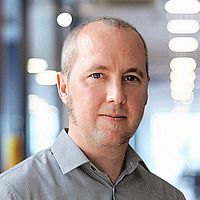
New data for the energy transition
With the help of the NEED platform, the planning basis is made digitally available in the form of data from different levels and domains and linked with each other on the basis of ontologies. This creates a toolbox for end-to-end planning tasks from the building to the infrastructure, which enables automated, model-based analyses across system boundaries. In addition to an improvement in quality through transparent, digital and verified data, cost and time expenditures for data acquisition and preparation, which account for a share of more than 2/3 in planning processes, are significantly reduced.
With the NEED platform proposed here, the processes in the context of a data ecosystem are considerably simplified and accelerated. Heterogeneous energy-related data sources are brought together automatically and linked logically and consistently across the different sectors as well as temporal and spatial levels by means of ontologies. In this context, no existing data platforms are to be replaced, but rather integrated into the ecosystem as a source. In addition to conventional data sources (such as energy atlases, state offices, grid operators, building data, geothermal resources, weather data) of the different planning levels (such as buildings, neighborhoods, regions), possibilities to fill existing gaps with synthetic data1 will be explored. By integrating conventional data and deriving synthetic data, the NEED platform results in a robust, low-maintenance, and flexible tool for deriving energy measures at different spatial levels without losing sight of the big picture.
Finally, tools and models of the partners shall access the required data via semantic queries and suitable interfaces in order to perform the respective (planning) tasks. Through this, the NEED approach for a transparent provision of current data will be evaluated in particular on the examples of heat conduction planning and the creation of a dynamic energy utilization plan.
The NEED project will significantly simplify and accelerate processes in the context of a data ecosystem. In doing so, the project addresses the following elements:
Federal Ministry for Economic Affairs and Climate Action | Projektträger Jülich
Förderkennzeichen 03EN3077B
01.07.2023 - 30.06.2026
